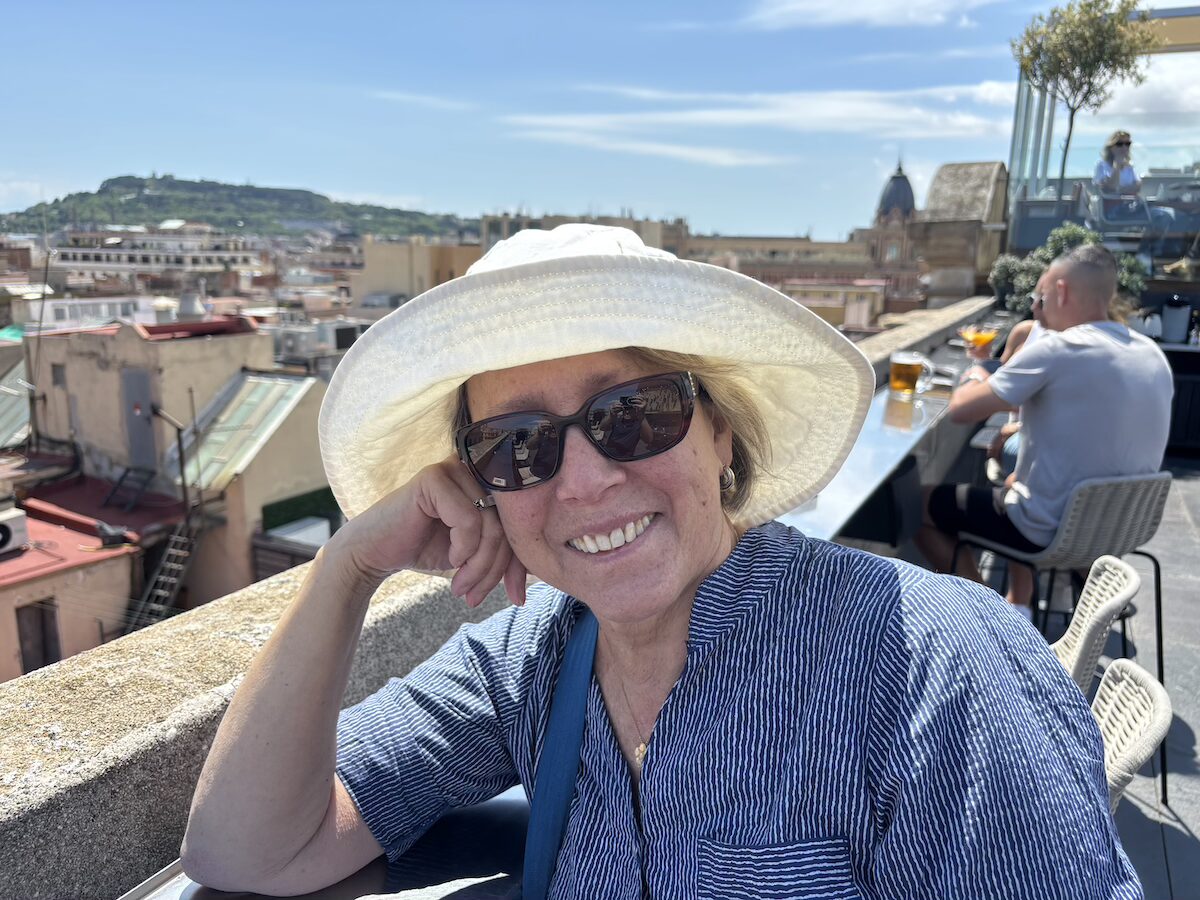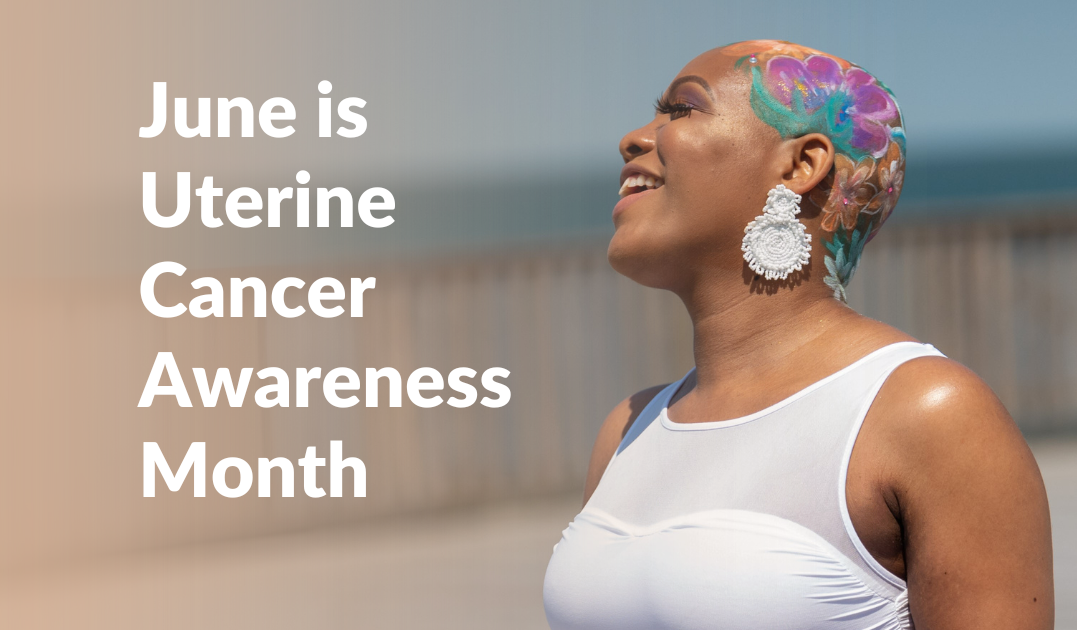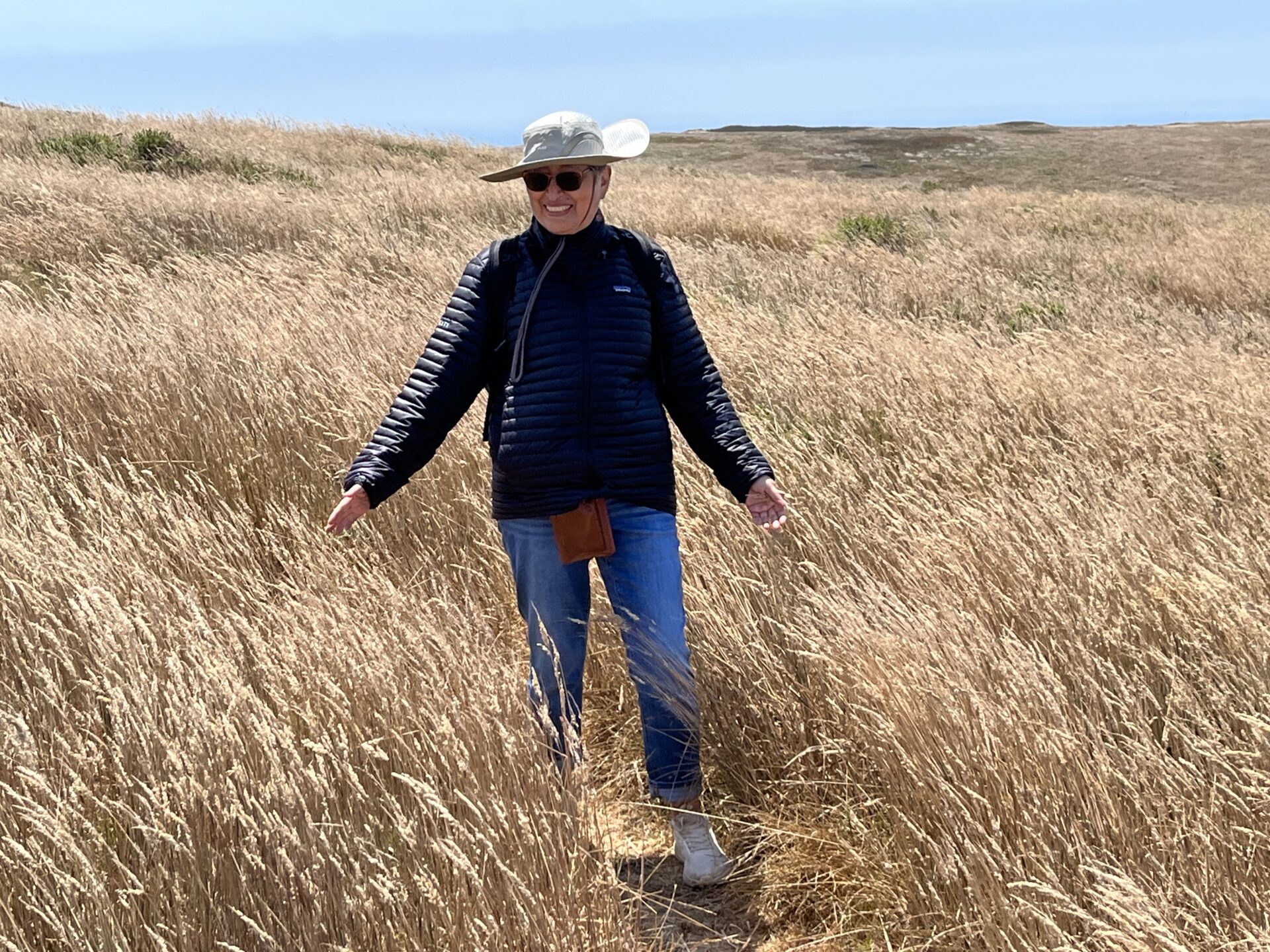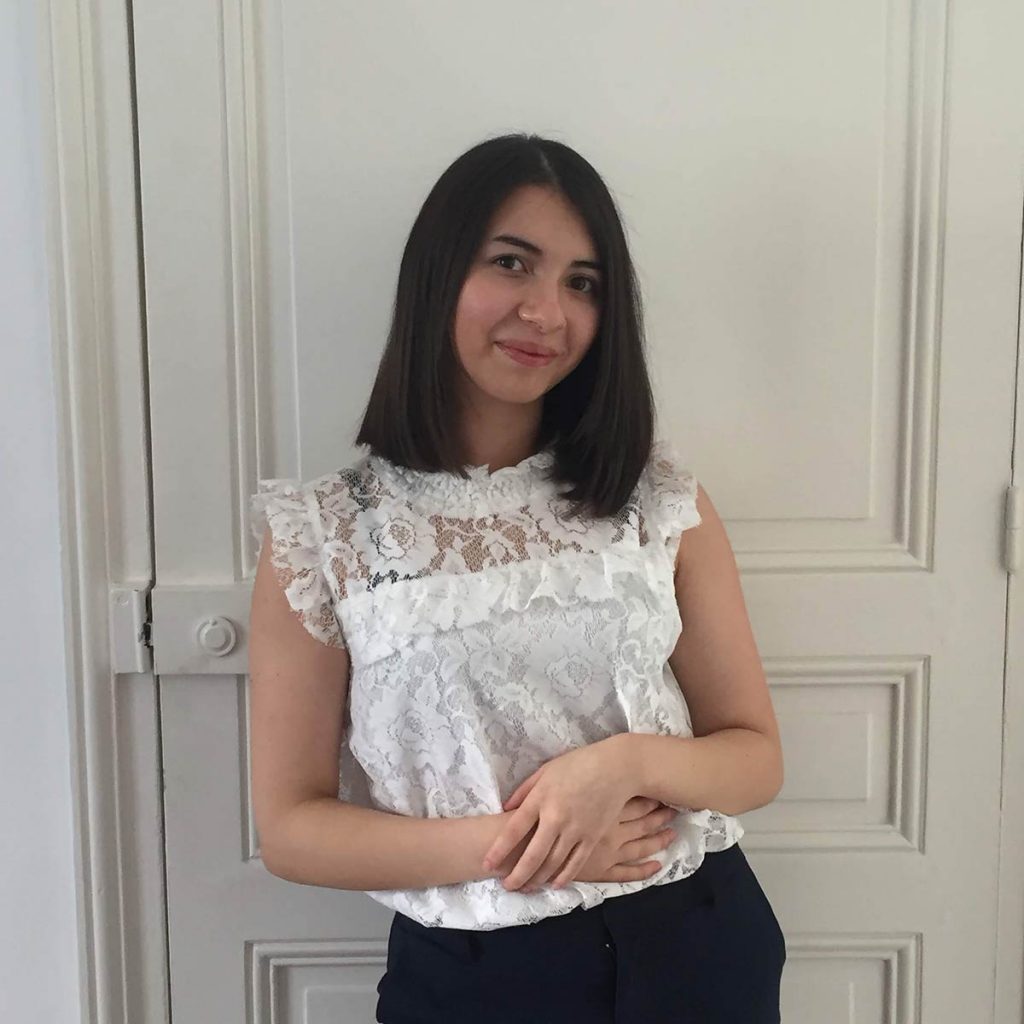
Most people who dedicate their lives to raising awareness about ovarian cancer, or who dedicate a gift-giving occasion to raise funds for research, have a personal connection to the disease. But for Maite Monardes-Gonzalez, a 15-year-old in Santiago, Chile, that inspiration came from the movies.
Ever since she was three, Maite knew she had an artistic flair. “I liked to dress up, I always liked wigs. That’s when I started watching films. My father introduced me to Star Wars. Then, when I was seven, he showed me Clue,” Maite said, recalling the first time she saw Madeline Kahn on screen.
“And that’s when I fell in love with this charismatic woman and everything she did,” Maite said. “I found her and she found me, and it was perfect, just magical.”
Finding comfort, discovering her muse
Hearing Maite describe her impression of Madeline is like listening to the gushings of a fangirl, but delivered in the voice of a cinephile who carries herself in a manner well beyond her 15 years.
“I couldn’t take my eyes off of her,” she said. “She was just floating on the screen. Her charisma, that light she has in her eyes and in her voice. I think she just melts my heart with it.”
Maite watched Clue again at age nine and admits to not understanding all of the jokes that were aimed to grownups. But it was when she watched it again, at the age of 12, that she saw Madeline in a different light.
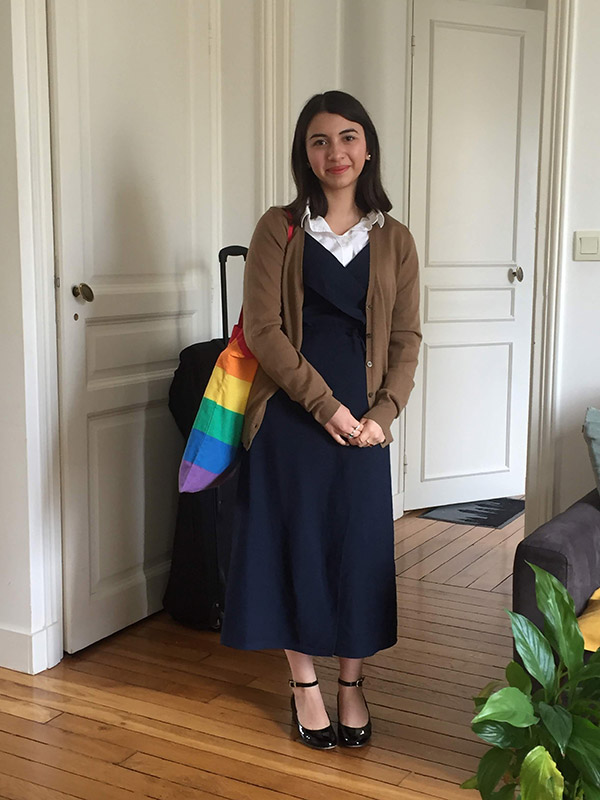
Maite and her family had moved from Santiago to Paris when she was nine, and her entry into adolescence a few years later – never a picnic for anyone – was fraught. She was on the cusp of teenagerhood, being bullied by her peers for being a foreigner, and struggling with coming out.
“It was a very dark time,” Maite recalled, “and instead of turning to drama for comfort, I turned to comedy. Just seeing that laughter of [Madeline’s] and watching her in interviews, she just seemed like a friend. Watching her just really comforted me.”
It was at this time that Maite began to delve into the life and career of the Hollywood icon, watching all of her films, reading her biography, poring through interviews and documentaries. She was taken with Madeline’s overwhelming confidence.
“She was never afraid to be outspoken, and she never apologized for it.”
But what Maite was really taken with was the way that Madeline spoke more with her actions than her words. She cited the time that Madeline brought her college friend Charles Loughton onto her show “Oh Madeline” to play a cross-dressing man, and in doing so, brought subversive queer theater into America’s living rooms.
“Madeline, she was someone who was able to say ‘you ain’t seen nothing yet’ … she would always surprise,” Maite said. “But when I think about all the things she wasn’t able to do because her life was cut short by [ovarian cancer], it just feels really overwhelming.”
Finding her voice
Maite learned, through Madeline’s story, how difficult it can be to diagnose ovarian cancer, how there’s not enough attention given to the disease, how there’s so much more we need to understand about its origins and treatment options. She thinks about women everywhere – the people who depend on them, the jobs they fill – and how much we lose when lives are cut short and full potentials are not realized.
So she has made it one of her life goals to raise awareness and raise support. In fact, this past Christmas, her first Christmas back in Chile with her extended family, she told everyone that she didn’t want anything other than donations to be made to OCRA in memory of Madeline Kahn.
“It was the best thing that could happen. My mother printed out the donation confirmation email and wrapped it in an envelope and gave it to me,” Maite said, “and I just started crying.”
This desire to help others extends to other aspects of women’s health. Things eventually got better for Maite at her school in Paris and she was elected to student council. She used that platform to advocate for sanitary pads to be placed in the girls’ restrooms. It was not an easy ask of a school run mostly by men who didn’t want to talk about menstruation. But she did it.
She’s also written letters, through an organization in France, to people who are ill or lonely or elderly. “You need to lend a hand to someone who can’t. It’s not going to cost you anything to share the pain or problems.”
On feminism and film
Maite, who just started a new school year back in Chile, has many academic and career interests, including feminist issues, women’s health, and genetics and neuroscience, especially as they relate to mental health. But her true love is film (she is on an “Oscar marathon” to watch every best picture and best actress winner), and she wants to pursue acting. She sees art as a lever for change.
“Film is like a machine that generates empathy,” she explained. “When you go to a movie, you have to lose yourself to watch a character evolve and put yourself in their place.”
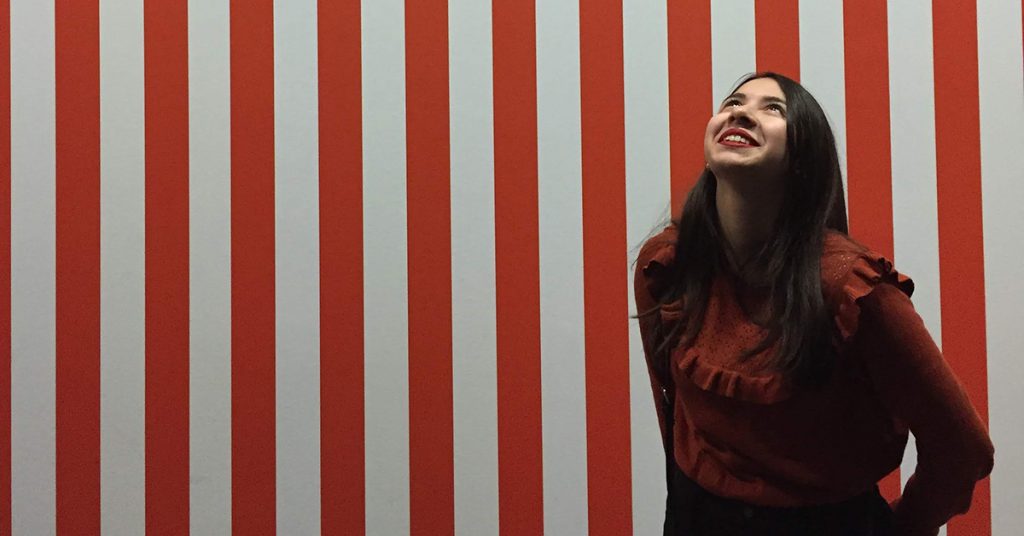
She credits her music teacher in Paris with instilling in her the confidence to use her voice, and for imparting a nugget of wisdom. “She told me that art can reflect or deform society,” Maite said. “That’s something I’ve always had in the back of my head when I watch movies. They can reflect and at the same time, misshape it.”
She also speaks of Mel Brooks and how he talked about the different ways to get your point across. You can scream and shout about something that’s not right, or you can mock it, like he did with the Nazis in The Producers.
“When you’re being serious and shouting, people will always disagree with you,” Maite said. “Instead, when you make people laugh or cry, there’s a feeling that unites them all, and they can’t deny it. You can change the world through art.”
The world Maite would like to create is one where women can be more comfortable and have more rights. Where everyone who is living can do so in a way that is dignified. She is inspired by figures like Martin Luther King, Jr., Greta Thunberg and Kamala Harris, and hopes to have a platform herself one day where she can address the issues she cares about, including ovarian cancer research.
“I will always keep fighting to keep Madeline’s legacy alive,” she said. “Just everything that she meant, everything that she was. It just really pains me that she never got to see how much the world cares for her. And how much she meant to the world.”
Maite, we thank you for your commitment to the fight against ovarian cancer. And we have no doubt we will see you on the world’s stage one day, using your voice for good.
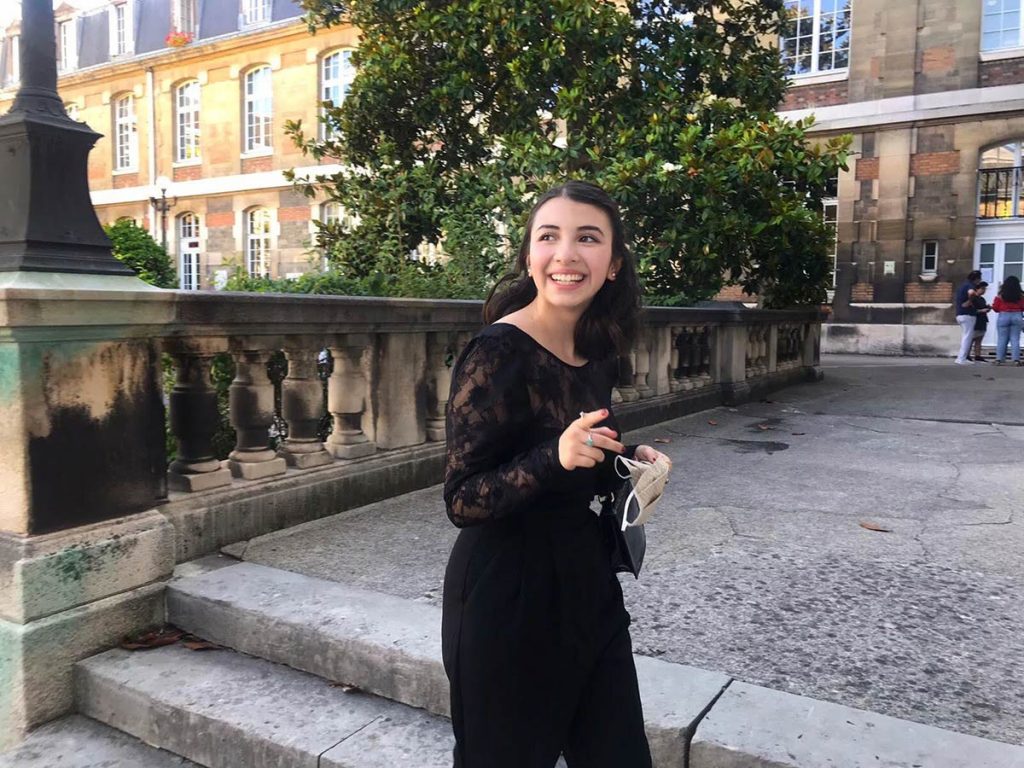
In early 1999, the funny and beloved actress Madeline Kahn was diagnosed with ovarian cancer, and publicly announced her disease in an effort to raise awareness so that more people could be diagnosed at earlier stages. On December 3, 1999, at the age of 57, Madeline succumbed to the disease. Her husband, John W. Hansbury, joined the Board of Directors of Ovarian Cancer Research Fund (now OCRA) and created the annual “Stand Up for Madeline” comedy event in tribute to his late wife and to raise funds for research.
